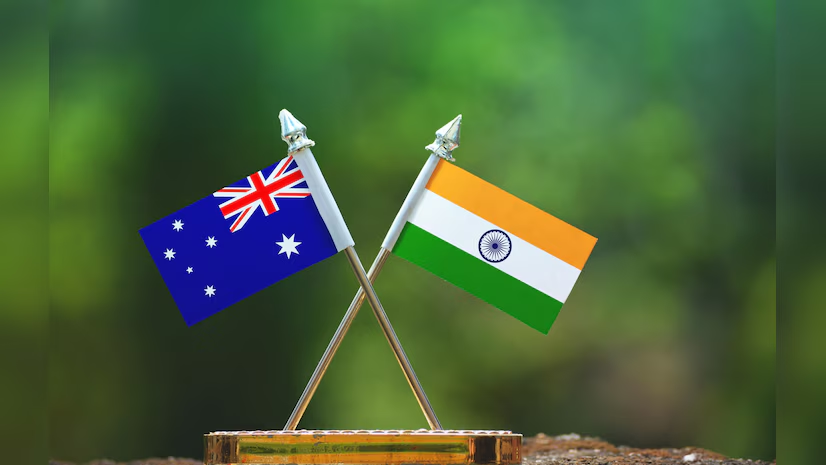Australia and India are taking steps to boost their trade and investment relationship, with both nations keen to unlock significant economic potential. Yann Sinclair, Vice Consul at the Australian Consulate General in Mumbai, highlighted the importance of the ongoing India-specific strategy to enhance bilateral ties. During a session organized by the World Trade Center Mumbai and the All India Association of Industries, he stressed that businesses can play a pivotal role in strengthening this relationship.
Australia-India Trade Potential
The growing trade potential between Australia and India was a central theme of the recent discussion at the World Trade Center Mumbai. Rupa Naik, Executive Director of WTC Mumbai, pointed to the substantial growth in bilateral trade over the past few years. She stated, “In the last five years, bilateral trade between India and Australia has more than doubled, rising from USD 10.7 billion in 2020 to USD 22.4 billion in 2024.” This growth is attributed to the India-Australia Economic Cooperation and Trade Agreement (ECTA), which marks its third anniversary this year.
However, Naik emphasized that there is still untapped potential in both trade and investment. She encouraged both nations to expedite negotiations for a comprehensive Free Trade Agreement (FTA) to maximize the economic benefits of the partnership. “The ECTA has played a pivotal role in enhancing trade, but to fully harness the economic potential, we need a broader and deeper agreement,” Naik said.
India’s Economic Growth Opportunities
Raman Bhalla, President of the Sydney Investors, Professionals and Business Network Inc., underlined India’s growing economic importance. Bhalla noted that amid rising global trade protectionism, India is standing out due to its liberal trade policies, including reductions in tariffs. He highlighted India’s vast consumer base as a major opportunity for Australian businesses.
“India offers tremendous economic opportunities for Australian businesses, especially in sectors like defence, agribusiness, critical minerals, renewable energy, and food & beverages,” Bhalla said. However, he pointed out that current business between Australia and India is about USD 40 billion, far less than the USD 400 billion worth of trade Australia shares with China. To bridge this gap, Bhalla suggested that businesses on both sides should focus on turning opportunities into tangible results.
He also noted the need for more collaboration beyond cricket and suggested exploring opportunities in other entertainment sectors. While government support is strong, Bhalla stressed that it’s now time for private businesses to take the lead in developing practical strategies and advancing bilateral trade.
Networking and Strategic Expansion
Malini Dutt, Trade and Investment Commissioner – India, Investment NSW, stressed the importance of business networking in today’s geopolitical climate. “With rising tensions and recent tariff changes, Australia must look to expand trade with reliable, like-minded partners,” Dutt said. India, she pointed out, does not yet rank among the top 10 trading partners of New South Wales, despite vast potential for growth in trade relations.
“The Economic Cooperation and Trade Agreement (ECTA) has laid a solid foundation,” she added. “Now, it’s up to businesses to take advantage of this framework to deepen economic ties.” She also noted that India and Australia have complementary economic strengths, making them natural allies for future growth.
The Need for a Comprehensive FTA
Dutt emphasized the critical need for a comprehensive FTA between India and Australia to fully unlock the benefits of their strategic partnership. “India and Australia are natural allies with strong complementarities,” she said. “A comprehensive FTA is essential to maximize the potential of this relationship.”
The ECTA, Dutt added, is only the second such agreement India has signed with a developed nation in recent decades, underscoring its strategic importance. She suggested that both countries should continue to work on refining the agreement to pave the way for a more comprehensive trade deal in the future.
The Role of the ANZ India Business Chamber
Dimple Merchant, Committee Member and Regional Coordinator of the ANZ India Business Chamber, spoke about the importance of the India-Australia-New Zealand partnership in fostering economic growth in the Indo-Pacific region. “India, Australia, New Zealand, and Singapore form a dynamic belt of opportunities,” Merchant said. She pointed out that India, with its vast market, is emerging as a global economic powerhouse, which presents opportunities for Australian and New Zealand businesses to tap into.
Merchant also highlighted the role of the ANZ India Business Chamber in promoting trade and investment within the Indo-Pacific. “The Chamber is a unique forum that equally represents Indian and Australian businesses,” she said. “Our mission is to strengthen business relationships across the region, particularly among India, Australia, New Zealand, and Singapore.”
Looking Ahead: Collaboration at CAP Tech 2025
Raman Bhalla encouraged global businesses to take part in CAP Tech 2025, an event in Sydney that will explore new avenues for collaboration between India and Australia. “This is an excellent opportunity for companies to deepen their economic ties and explore innovative partnerships,” he said.
The future of India-Australia trade looks promising, but it requires active participation from both governments and businesses. With continued diplomatic efforts, a comprehensive FTA could unlock the full potential of this vital partnership.

